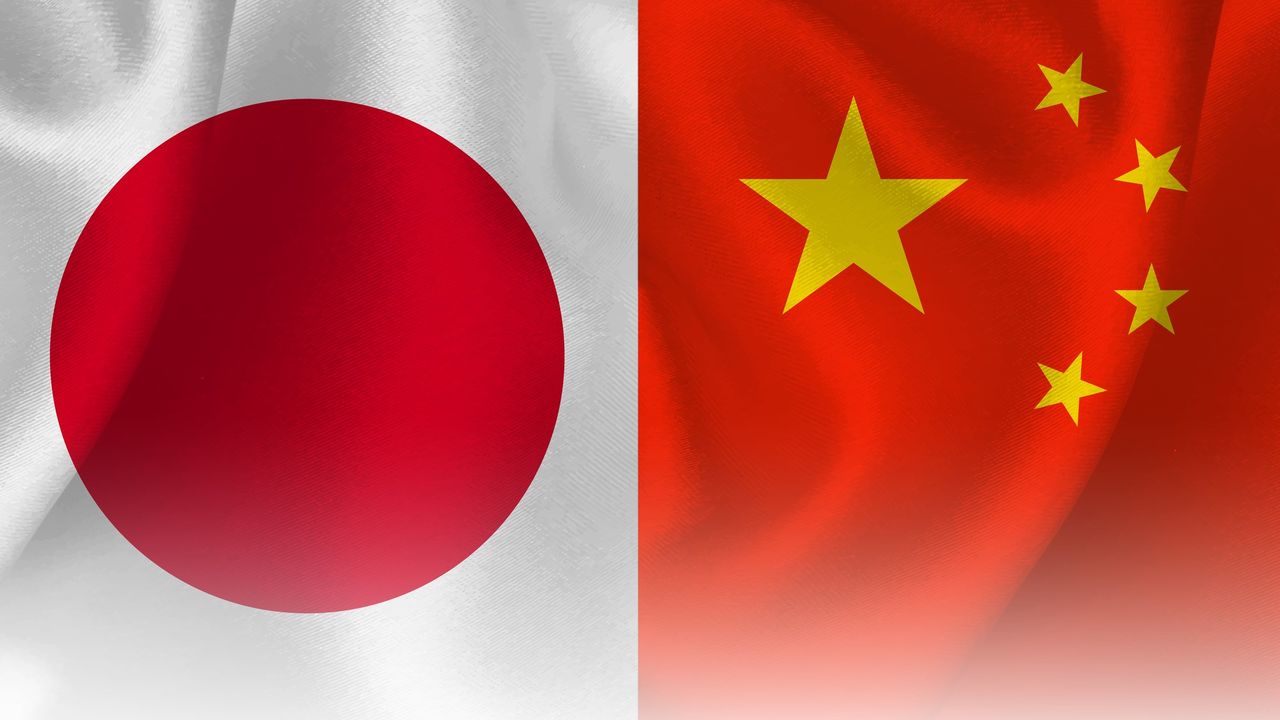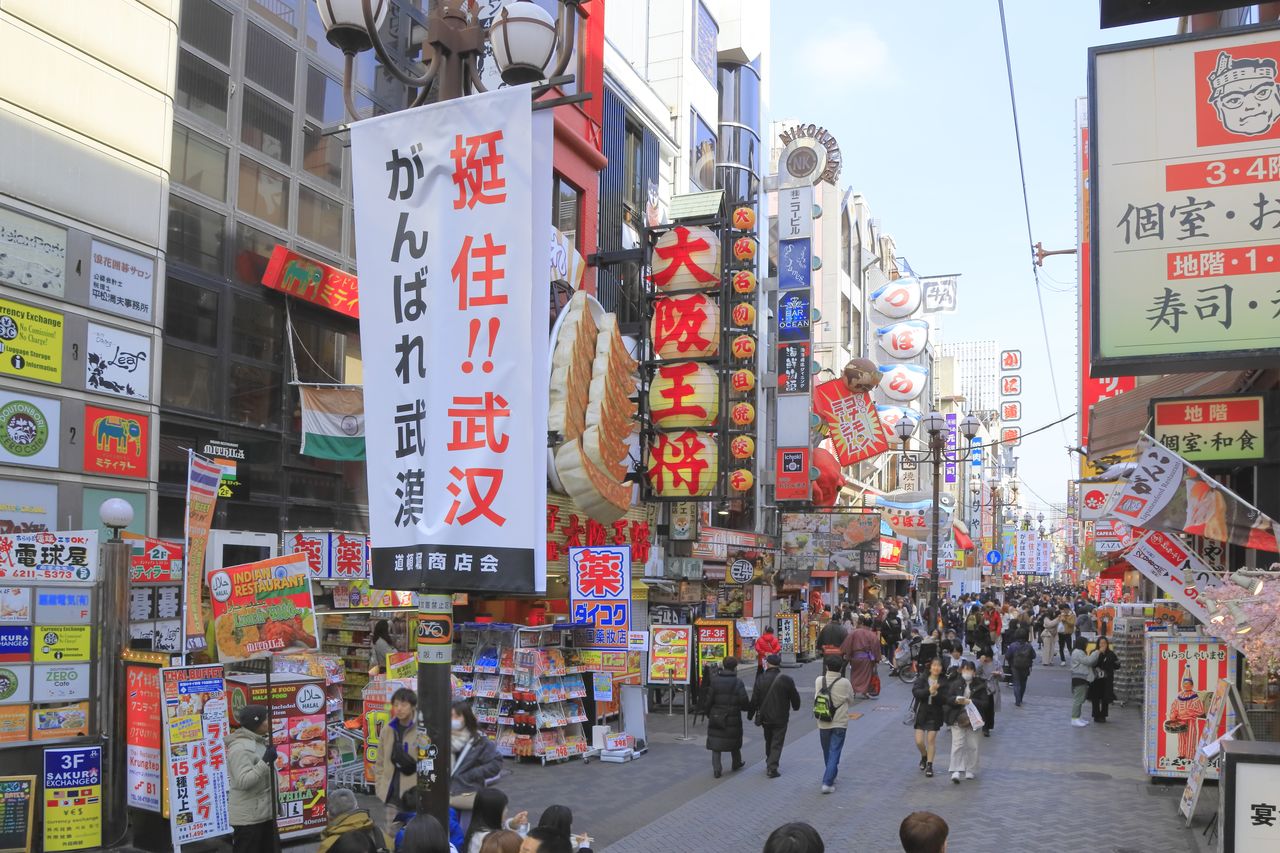
Japan-China Relations and the Chinese People’s Strength in a Time of Crisis
Politics- English
- 日本語
- 简体字
- 繁體字
- Français
- Español
- العربية
- Русский
COVID-19 Undermines Bright Chinese Future
The planned April state visit of Chinese President Xi Jinping to Japan was postponed due to the difficulties facing the two countries amid the COVID-19 pandemic. Fortunately, the postponement was decided by both countries diplomatically, rather than resulting from a unilateral decision.
The missed chance to improve bilateral ties through the visit is regrettable, however, especially considering that Chinese leaders have only visited Japan about once every 10 years, and that the planned April visit was to have been the first state visit by a Chinese leader to Japan in 12 years.
The COVID-19 outbreak has confronted both Japan and the United States with a range of problems. It has also brought them the experience of decoupling with China. The flows of people to and from China and the supply chain (stretching from the procurement of raw materials to production, sales, and transport) have all been upended. It has also become clear how those problems impact stock markets around the world. I hope that this experience will be an opportunity for Japan and the United States to reassess their relationship with China and consider how to coexist with the Asian giant.
The Chinese economy is three times larger than Japan’s, and has enjoyed smooth sailing in recent years, continually posting over 6% annual growth. But the outbreak of the virus has shattered the image of a bright future held by some Chinese, who believed the nation was on track to surpass the United States and enter its own golden age. Now more Chinese people are leaning toward the realistic view that things might not be going as well for their nation as they had previously imagined.
The United States has also seen the negative side of decoupling with China. I hope that this experience will lead both superpowers to take more realistic approaches and prompt them to mutually reassess their bilateral relationship.
Japan’s Overdependence on China
The current Japanese economy cannot function without China, including its inbound tourists. In terms of crisis management, an overdependence on China is problematic, but moves by Japan to lower that level of dependence significantly would have an enormous impact on Japan’s economic growth. For Japan, there is no country capable of taking the place of its superpower neighbor China, with its huge market.
I certainly do not look favorably on everything China is doing. The expansion of its military might is unquestionably heightening the security threat to other countries in the region. In response to this, Japan and the United States are strengthening their security ties. Questions remain about how China will react in turn, and what measures Japan should take on the security front going forward.
While paying proper heed to security issues, how can Japan develop stable, cooperative relations with China in an atmosphere of peace? If Japan can incorporate all of those factors into its China policy, then I think it can chart a good path forward.

The Dōtonbori district of Osaka, pictured here in February 2020, has been crowded with foreign visitors in recent years, but the number of Chinese tourists fell sharply after the COVID-19 outbreak. The banner in the foreground reads: “Good luck to everyone struggling in Wuhan!” (© Aflo)
China Actively Involved in Assisting International Community
The outbreak of COVID-19 has taken place at a moment when Europe and the United States have become more inward looking. Previously there had been a trend toward internationalism, where countries cooperated to solve problems beyond their own borders. Topping this list of problems requiring international responses are, first of all, the environment, followed by contagious diseases.
Despite the current global pandemic, there is a widespread tendency for each country to only think about its own problems. I think it is regrettable that the international community has not come together as one to face the current crisis.
One role for China moving forward is to actively cooperate as a key member of the global community. In March, when China had already curbed the spread of COVID-19 within its own borders, it dispatched a medical support team to assist hard-hit Italy and also pledged to donate $20 million to the World Health Organization.
Even if China can announce that its outbreak has subsided domestically, if the virus continues to spread in the United States, Europe, and elsewhere, the damage to the global economy will be enormous. This means that China has to keep its eyes focused even more on the international situation.
Japan also faces a difficult situation, but instead of just criticizing the WHO director-general for being too closely tied to China, we need to do more to support that organization. I hope that the global movement to sustain the WHO will gain momentum as it battles with the pandemic.
The Chinese Sense of Justice
Finally, in considering the issue of COVID-19 related to China, I want to touch on the notion of justice that is fundamental to Chinese people. The idea of whether human behavior is justified or not is the standard for judgement among the Chinese and underpins their sense of values.
Kohinata Hakurō, a Japanese who was a bandit prior to and during World War II and who had deep ties with common people in China, was quoted as saying: “The Chinese will happily throw away their life for justice. The Japanese army does not realize that there is a straight line from justice to the actions of Chinese people.”
Dr. Li Wenliang, an ophthalmologist in the Chinese city of Wuhan, the epicenter of the COVID-19 outbreak, posted information on a social-networking site on December 30, 2019, about patients suffering from a SARS-like disease. For this, he was persecuted by the local authorities, and in February of this year he died of pneumonia resulting from the virus. The Chinese public was enraged that this whistle-blower was oppressed and treated as a rumor-monger. Overlooking that fact is to go against the notion of justice held by the Chinese people.
The outcome was an example of the power of the Chinese masses. In the face of the explosion of public anger, the authorities had to recognize publicly that their initial response to the virus outbreak was wrong.
Public Opinion Forces the CCP’s Hand
There is a strong image that in China everything moves according to the will of the Chinese Communist Party. But when it comes to decisions affecting people’s lives and health, the views of the people have become increasingly important. Even the CCP cannot ignore the voice of the people.
The reason that China has begun to address its environmental problems is that they directly threaten the lives and health of the people. The government had to act when the masses expressed their strong disapproval with the poor state of the environment.
In short, it can be said that the voice of the people forces the Party to act. I hope that Japan will have a better awareness of this aspect of Chinese society.
(Originally published in Japanese based on a March 12, 2020, interview; written and edited by Saitō Katsuhisa. Banner image © Pixta.)